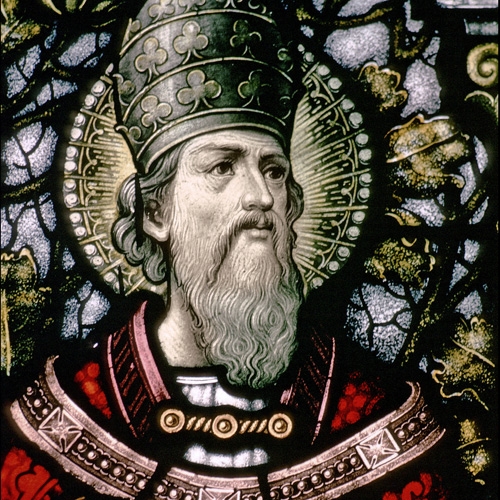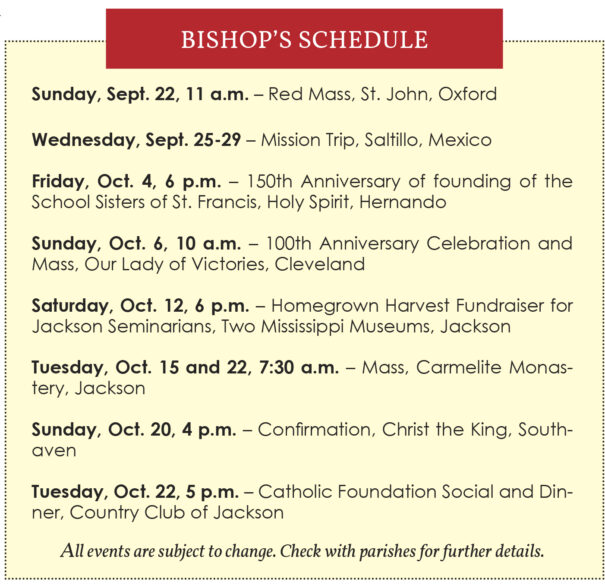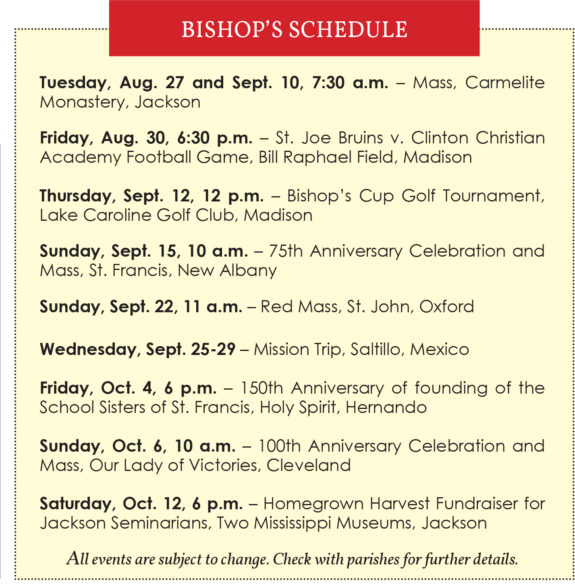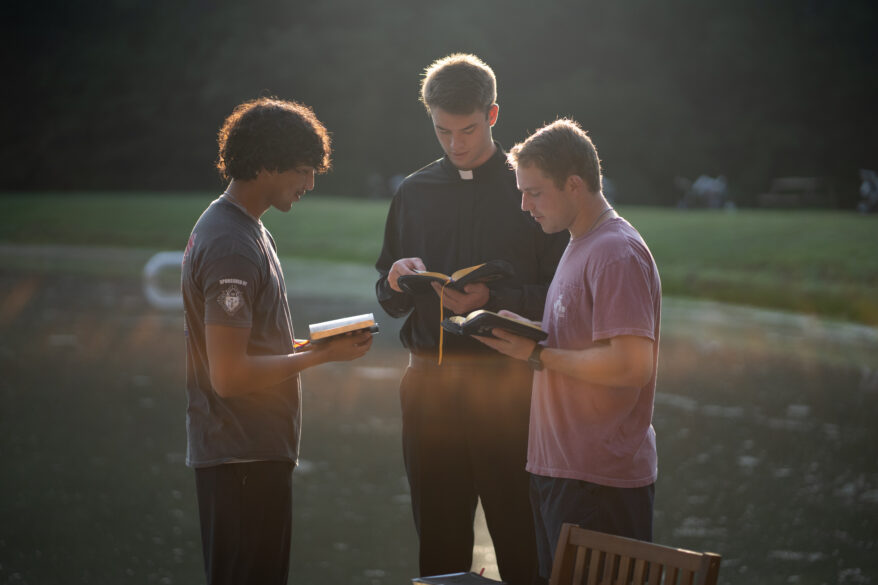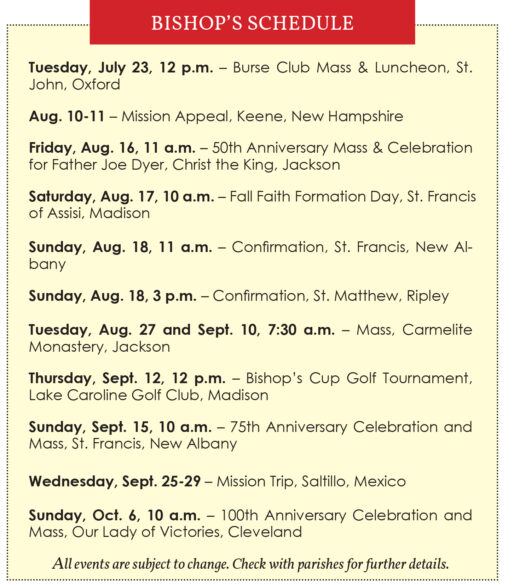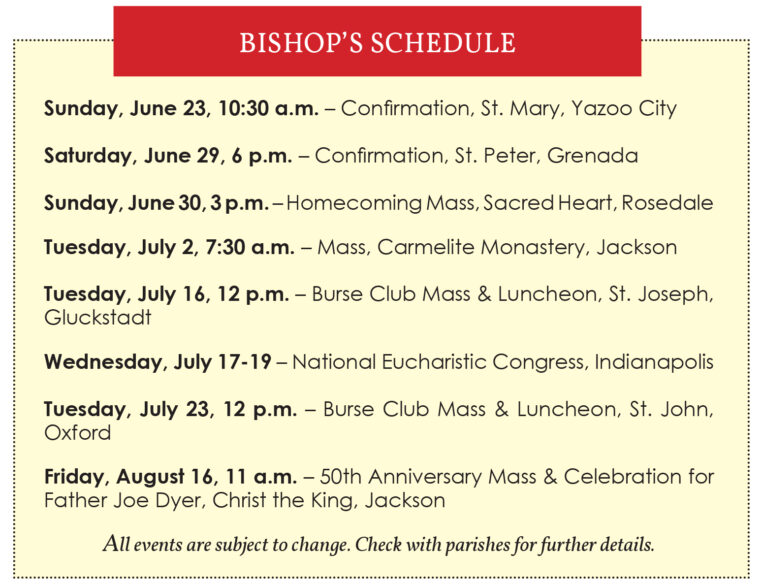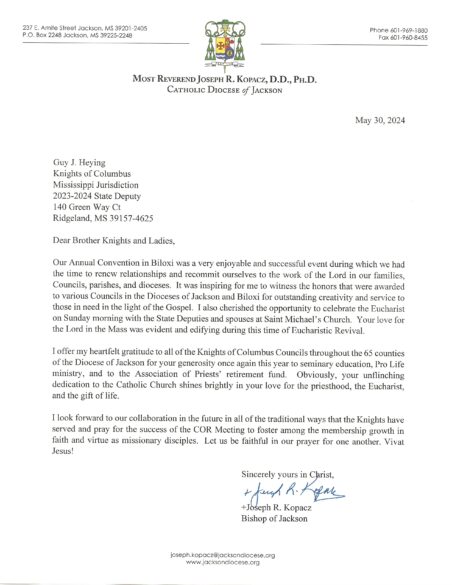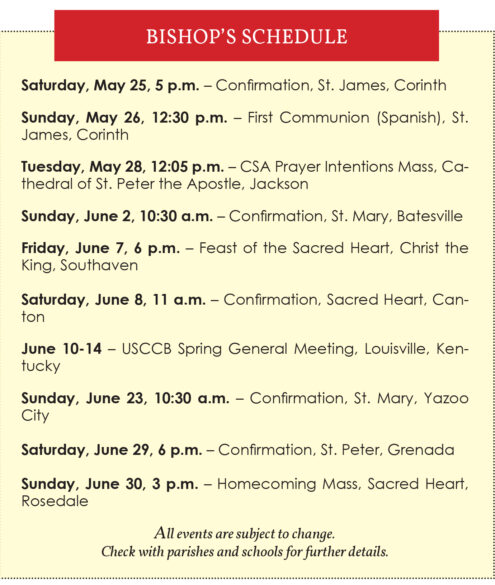Por Obispo Joseph R. Kopacz, D.D.
Desde el centro de nuestra iglesia y desde el corazón de Jesucristo, cada año durante los últimos 110 años, una sucesión de papas en una cadena ininterrumpida que comenzó con Benedicto XV en 1914 y continuó con el Papa Francisco en 2024, han dedicado una Jornada Mundial de los Migrantes y Refugiados. Históricamente, fue el impacto agónico de la Primera Guerra Mundial lo que provocó el inicio de esta digna conmemoración.

Además de la muerte de millones de combatientes y civiles en el continente europeo, millones fueron desplazados y huyeron de sus amadas patrias. La guerra es mala, y en cada generación, es una de las razones más obvias que incita a la migración forzada, una tragedia en nuestro tiempo que se está desarrollando actualmente es Ucrania, el Medio Oriente y en varias naciones africanas, por nombrar solo algunas. Hay otras causas. La pobreza profundamente arraigada y los desastres naturales, a menudo vinculados, la hambruna, la violencia abrumadora de los cárteles y la corrupción desenfrenada son factores importantes que también avivan las llamas de la migración.
La iglesia en todo el mundo está sirviendo y sufriendo en estas duras realidades. Reflexionando sobre los misterios del Reino de Dios como es nuestra naturaleza espiritual, el 19 de octubre de 2023 marcó la conclusión de la Primera Sesión de la XVI Asamblea General Ordinaria del Sínodo de los Obispos. A continuación, algunas selecciones de la declaración del Papa Francisco sobre la conmemoración de este año. “Subrayar la dimensión sinodal permite a la Iglesia redescubrir su naturaleza itinerante como Pueblo de Dios que camina a través de la historia en peregrinación, ‘emigrando’, podríamos decir, hacia el Reino de los Cielos … Del mismo modo, es posible ver en los emigrantes de nuestro tiempo, como en los de todos los tiempos, una imagen viva del pueblo de Dios en camino hacia la patria eterna. Sus viajes de esperanza nos recuerdan que ‘nuestra ciudadanía está en los cielos, y es de allí que esperamos un Salvador, el Señor Jesucristo’. (Filipenses 3:20) Por eso, el encuentro con el migrante, como con todo hermano y hermana necesitado, es también un encuentro con Cristo. Él mismo lo dijo. Cada encuentro en el camino representa una oportunidad para encontrarse con el Señor; es una ocasión cargada de salvación, porque Jesús está presente en la hermana o en el hermano que necesita nuestra ayuda. En este sentido, los pobres nos salvan, porque nos permiten encontrarnos con el rostro del Señor”.
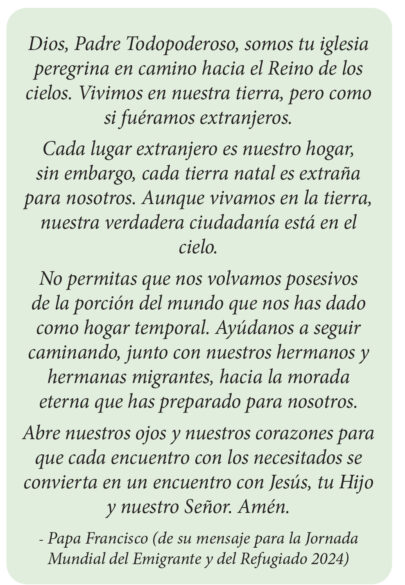
Lo que sigue no es más que un acontecimiento traumático en la trágica historia de la migración forzada. Despertada en la oscuridad de la noche, la madre de José le dijo que se fuera y se dirigiera al norte para quedarse con su tía, que vivía a miles de kilómetros de distancia en otro país. No era que ella quisiera que se fuera, su corazón se rompía con la mera perspectiva de su partida, pero las continuas amenazas de las pandillas y los cárteles de la droga en el vecindario donde vivían anticipaban su muerte si se quedaba. Ella pronto se reuniría con él porque quedarse podría garantizarle el mismo destino para ella si descubrían que José había partido.
Tales historias podrían multiplicarse casi infinitamente y contarse con cualquier número de variaciones con respecto a sus detalles. Personas como José vienen a este país como un extraño, a menudo sin lazos familiares, sin amigos, y solo con la esperanza de encontrar un lugar seguro. Sabemos que la vulnerabilidad impregna los mundos de los refugiados, migrantes e inmigrantes, pero las buenas noticias también son parte de la historia.
Ya sea que miremos la migración y la inmigración de manera pragmática o a través del lente del Evangelio, nuestra nación ha permitido que florezcan muchos que han llegado por aire, agua o tierra. A cambio, somos una nación rica en diversidad, que florece gracias al trabajo de tantos extraños. La Jornada Mundial de las Migraciones y los Refugiados nos desafía a aprovechar las bendiciones que abundan con el movimiento de los pueblos, al tiempo que abordamos las cargas y los desafíos de una manera digna a nuestro llamado como discípulos del Señor. Importa lo que pensamos, cómo hablamos y cómo respondemos a los extraños que nos rodean. Dios camina con su pueblo, con todos nosotros.

